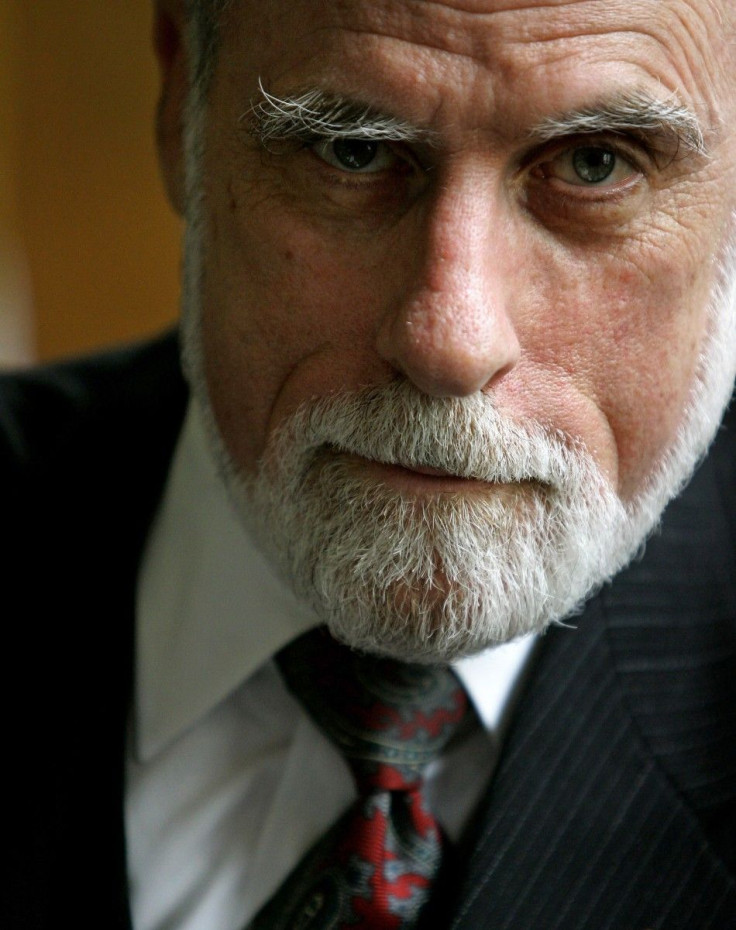Internet Censorship: Is the Internet a Human Right?
Opinion

Vinton Gray "Vint" Cerf, the famed computer scientist lauded as one of the "Fathers of the Internet," has written on op-ed piece in the New York Times in opposition to the idea that the Internet is a human right. While Cerf, possibly more than anyone, understands the power of the Internet, he makes arguments from a purely mechanical perspective and fails to perceive the Internet in any humanistic fashion--a crucial flaw in the logic of his article.
"Technology is an enabler of rights, not a right itself," say Cerf. He breaks his article into two sections in order to make the point. First, he argues that the Internet cannot be considered a human right. Cerf says, "[human rights] must be among the things we as humans need in order to lead healthy, meaningful lives, like freedom from torture or freedom of conscience."
Cerf makes a valid point in the first portion of his opinion piece. Technology cannot be considered a human right because it's not elemental enough. Cerf illustrates this point by arguing that at one point in time, if you didn't have a horse, it was hard to make a living. The important human right to identify at the time was not the right to have a horse, but instead, the right to make a living.
While technology is often a point of differentiation between the "haves" and "have-nots," that does not necessarily make any piece of technology a human right. Cerf is correct in this regard. Human rights, often thought of as natural rights, are fundamental to our existence as human beings, like access to food and water. Access to the Internet, a light bulb and a wheel are not.
The second point made by Cerf is less valid, and he admits so. In the second portion of his article, he argues that the Internet is not even a civil right. He writes, "Internet access is always just a tool for obtaining something else more important," though he admits, "the argument that it is a civil right is ... a stronger one than that it is a human right."
It is at this point that I must differ. Civil rights, those which ensure our personal liberty, are vast and ever-expanding because information technology expands the complexity of civic discourse and the knowledge base needed to perfrom civic duties. Nothing makes this clearer than the challenges now provided to our civil rights bills such as the National Defense Authorization Act and Stop Online Privacy Act.
In a previous column, I outline why NDAA and SOPA embrace the misguided values of the Patriot Act. The point I made largely has to do with the new capacities the federal government will be allowed to monitor individuals in the United States. Though NDAA and SOPA are undeniably infringements on the civil rights of Internet users, such monitoring and restrictions are often worse under totalitarian regimes, namely China and places like Iran.
The Internet, much like a voluminous book collection mashed together with the public square, allows ideas to be expressed, shared, traded and expounded. The Internet, more than any other technology, should be considered a civil right because it allows citizens the right to free speech, which is a foundational civil right.
Here's a point I've made in my previous article about NDAA and SOPA: If financial contributions from corporations can be considered an act of "free speech," then a citizen's use of the Internet should also be considered an act of free speech and self-expression. By inhibiting -- and not guaranteeing -- a right to access the Internet in full, you inherently destroy the citizen's ability to discover new ideas and to determine the factual truth of a matter. To take away or modify a person's use of the Internet is to infringe the ability to participate in the democratic process in a principled and informed manner. The right in question is the freedom of access to information because the Internet is ultimately the most comprehensive -- and soon will be the only -- information resource.
Cerf may have been right to differentiate human rights from civil rights, but he is wrong to argue that the Internet is not a civil right. It is unlike the lightbulb or a horse or any other piece of technology ever in that it serves as a platform for self-expression and information sharing. To deny that would be to deny someone of their liberty -- the quality or state of being free -- and therefore, it would be a denial of that person's civil right.
© Copyright IBTimes 2025. All rights reserved.





















